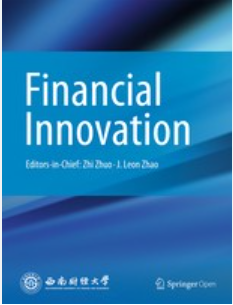ESG scores, scandal probability, and event returns
IF 7.2
1区 经济学
Q1 BUSINESS, FINANCE
引用次数: 0
Abstract
The informativeness of environmental, social, and governance (ESG) scores and their actual impact on firms remains understudied. To address this gap in the literature, we make theoretical predictions and conduct empirical research revealing that a high ESG score is associated with a lower probability of ESG scandals and lower stock returns during a scandal event. Our results suggest that ESG scores are heterogeneous but informative, and that a strong ESG reputation may have both positive and negative consequences for firms. Drawing on our findings, we develop a model and showcase that firms face an optimization problem when determining optimal ESG investment levels. Two equilibria may exist based on the trade-off between ESG scandal losses and ESG adjustment costs. Our model explains why certain firms make heterogeneous ESG decisionsESG 分数、丑闻概率和事件回报
环境、社会和治理(ESG)评分的信息量及其对公司的实际影响仍未得到充分研究。为了弥补这一文献空白,我们进行了理论预测和实证研究,结果表明,ESG得分高的公司发生ESG丑闻的概率较低,而发生丑闻时股票回报率较低。我们的研究结果表明,ESG 分数是异质的,但却具有信息量,强大的 ESG 声誉可能会对企业产生积极和消极的影响。根据我们的研究结果,我们建立了一个模型,并展示了企业在确定最佳 ESG 投资水平时面临的优化问题。在权衡 ESG 丑闻损失和 ESG 调整成本的基础上,可能存在两种均衡状态。我们的模型解释了为什么某些企业会做出异质性的环境、社会和治理决策。
本文章由计算机程序翻译,如有差异,请以英文原文为准。
求助全文
约1分钟内获得全文
求助全文
来源期刊

Financial Innovation
Economics, Econometrics and Finance-Finance
CiteScore
11.40
自引率
11.90%
发文量
95
审稿时长
5 weeks
期刊介绍:
Financial Innovation (FIN), a Springer OA journal sponsored by Southwestern University of Finance and Economics, serves as a global academic platform for sharing research findings in all aspects of financial innovation during the electronic business era. It facilitates interactions among researchers, policymakers, and practitioners, focusing on new financial instruments, technologies, markets, and institutions. Emphasizing emerging financial products enabled by disruptive technologies, FIN publishes high-quality academic and practical papers. The journal is peer-reviewed, indexed in SSCI, Scopus, Google Scholar, CNKI, CQVIP, and more.
 求助内容:
求助内容: 应助结果提醒方式:
应助结果提醒方式:


